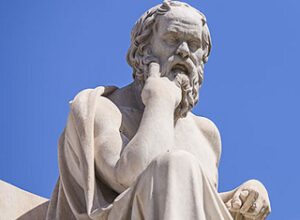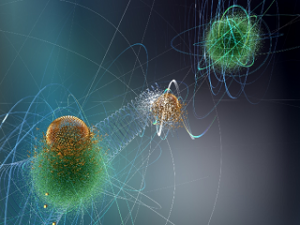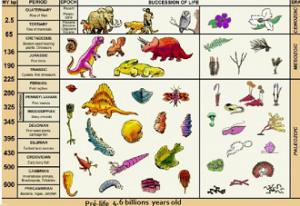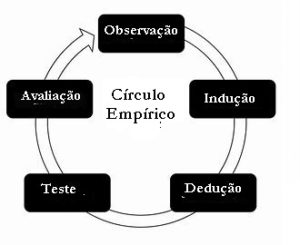
Arquivo para a ‘Cognition’ Categoria
Reification, objects and subjects
If on the one hand it is true that there is in the dominant idealist/enlightenment mentality a complete reification of life (the life that projects itself on the thing, res-thing), on the other hand the separation of subject and objects creates a dualism in which nature and objects that are part of life are ignored.
idealist/enlightenment mentality a complete reification of life (the life that projects itself on the thing, res-thing), on the other hand the separation of subject and objects creates a dualism in which nature and objects that are part of life are ignored.
The so-called subject-object dualism is explained by Edgar Morin as follows: “the concept of system can only be constructed in the object/subject transaction and not in the elimination of one by the other.” (MORIN, 1977, p. 136).
Morin will explain that both “naive realism” and “naive nominalism” (antagonistic currents since the medieval period) eliminate the subject, in nominalism the ideal system is one that does not have the subject, and in realism the ideal object is the system .
But the object “whether ‘real’ or ideal, is also an object that depends on a subject” (Morin, idem), and through the systemic way “the observer, excluded from classical science, the subject, stripped and thrown into the cans of garbage of metaphysics, they return to the fulcrum of the physis” (MORIN, ibidem).
Morin observes that the observer and the physis (Nature, with N) are confined in terms of a system, and proposes a new systemic totality “is constituted by associating the observer-system and the observer-system can, from there, become a metasystem in relation to one and the other, if it is possible to find the metapoint of view, which allows the observation of the whole constituted by the observer and his observation” (MORIN, 1977, p. 137).
He explains that one can, in a maximal simplifying view, reduce both the importance of the observer and the physis, “creating a supersystem, whose theory reveals the autonomous phenomenal systems”, it is good to clarify here that it is not a question of phenomenology but of a ” suprasystem” which has the characteristic of an autonomous phenomenon, is not the eidetic reduction.
The second meaning of the metapoint of view, “the ideological, cultural and social character of the theoretical system (the theory of systems) in which the conception of a physical system is inscribed” is emphasized (idem).
We cannot escape from this elaboration of the key epistemological problem: “the systemic articulation established between the anthroposocial universe and the physical universe, via the concept of system, suggests to us that an organizational character is fundamentally common to all systems” (MORIN, 1977 , p. 137).
Although there is talk of life linked to objects, in philosophy of the reification (or reification) of life, the dualistic mentality of separation between subjects and objects crystallizes and enlivens this in everyday life.
MORIN, E. (1977) The nature of NATURE. Lisbon PUBLICATIONS EUROPA-AMERICA, LDA.
Maieutics and giving birth to knowledge
The Socratic method was that the philosopher believed that no one had definitive answers to his questions and so walked the streets of Athens asking questions he considered basic about politics, morality and truth, the young democracy was corrupting itself.
no one had definitive answers to his questions and so walked the streets of Athens asking questions he considered basic about politics, morality and truth, the young democracy was corrupting itself.
In this way, each person could “give birth” answers, and with each answer he asked new questions, thus he defined himself as an “idea midwife”, he sought to instruct the “citizens”.
His opponents were the sophists who relied solely on the art of persuasion, and their aim was to flatter the rulers and give answers that people wanted to hear.
But many people, especially young people, were involved by his wisdom and teachings, among them was the disciple Plato who describes the various Socratic dialogues.
Thus his method was opposed to those of the sophists based on rhetoric and the art of persuasion, their theses were the most diverse, Gorgias for example, defended that “nothing exists”, Protagoras that “man is the measure of all things”, besides of this they charged for the lessons.
Aristotle will define it as “apparent but not real wisdom (sapientia), but it has not disappeared completely, it has changed form and discourse throughout history, but essentially it is rhetoric, today for example, performative thinkers and self-referentials.
Socrates’ great opposition to the sophists was that they, using persuasion and rhetoric, only proclaimed “opinion” called doxa and Plato, disciple and disseminator of Socrates, will organize the “episteme”, knowledge must be organized from the its “currencies, limits, its aspects and its appearance”, described as its “dialectic”.
Also Bachelard in our time criticizes opinion as unscientific: “Science, both in its need for completion and in its principle, is absolutely opposed to opinion” in his work: The Formation of the Scientific Spirit: contribution to a psychoanalysis of knowledge .
Socrates, accused of subverting the young and not worshiping the gods of the state, was sentenced to death, Plato will develop his method and create a school of thought.
Being aware of Being and living with the essential
Philosopher Socrates’ phrase “the life that is not examined is not worth living” would not be a great success today, frivolity has given rise to what is not essential as a false need for happiness and an environment of pain and resilience clashes with this mindset.
is not worth living” would not be a great success today, frivolity has given rise to what is not essential as a false need for happiness and an environment of pain and resilience clashes with this mindset.
One must examine in this context what consciousness is, and as hermeneutics asks, there is no consciousness, other than the consciousness of something, the phenomenological consciousness there is no dualism between subject and object, Being is seeking to examine the consciousness of something, whether it is concrete or abstract.
Social life requires some form of mutualism, being well and the Being does not deny its sociability, personal life requires examination of the Being, balance with nature, also with its own implies health, balance and this is not separate from interiority and capacity for personal reflection.
Pure exteriority leads to the unessential, performance, public image and personal self-worth are forms of exteriority that can lead to consumerism and exaggerated individualism.
Life and “examined the life” is complex, but living in essential change to simple style.
The essentials to live require few things: modest clothing, food and possessions can lead to a balanced and happy life, the opposite can lead to an excess of worry and stress.
At the other extreme, not having the essential can also lead to despair, there are the biggest and most unfair social situations, a society that does not care about this is out of balance and leads everyone to imbalance, even those who accumulate and become selfish and consumerist.
The consciousness of Being in the Hegelian view would be linked to Being-in-itself and for-itself is only in the form of perception, it is in the imagination, the intentionality of phenomena that denies other objects (external) or of itself (internal) and so this type of awareness is related to nothingness.
Consciousness cannot be achieved without identifying itself with any being-in-itself (something in phenomenology) it is in it that it approaches in relation to another consciousness, this is because an action or choice as consciousness perceives in this relation the contingency and gratuitousness of existence.
Thus, this awareness leads to reciprocity, mutualism and an existence that is worthwhile, in the words of the philosopher Socrates “because it examines itself” and this vivifies it and moves towards fullness.
Pure exteriority is voluntarism and pure interiority is false essentiality and can be an escape.
The Trinity and Contemporary Christian Philosophers
Works on the trinity in Christian patristics include the work De Trinitate by Augustine, the Cappadocian priests: Saint Basil and Saint Gregory of Nazianzeno (image), João Damasceno and Tomás de Aquino, these from Antiquity to the Middle Ages, who worked at pericoresis in the Trinity.
work De Trinitate by Augustine, the Cappadocian priests: Saint Basil and Saint Gregory of Nazianzeno (image), João Damasceno and Tomás de Aquino, these from Antiquity to the Middle Ages, who worked at pericoresis in the Trinity.
I begin with a reference that I consider important for the adoption of phenomenological and hermeneutic thinking, the work L´Idole et la distance (1977) by Jean Luc Marion, he like others depart from Saint Augustine, but as a good hermeneutic he only wants to play “the Trinitarian game [ie, the Trinitarian pericoresis] ”that she take on the desolations including metaphysics, and take us to patience, work and humility.
It refers to pericoresis with a “dance” and desolations are the philosophical criticisms that the 19th century, in particular Nietzsche, made religion, especially the idea of God, will identify that the idea that the death of God would bring to man the light, if we look at reality, we will see that it did not happen, we see a man without humanism, now in the horrors of a pandemic that does not yield and the danger of a civilizing crisis.
Hermeneutics due to its interpretative structure, transmission and mediation “do not refer only to the annunciation, to the communication of God with man, they define the intimate life of God himself, who, for this reason, cannot be thought in terms of a immutable metaphysical fullness” (in the work of Gianni Vattimo: Etica de la interpretación, 1991).
Away from Hegel’s absolute idealism, and advancing the idea of Trinitarian ontology, which began in the early twentieth century, authors such as Pavel Florenskij, Sergei Boulgarov, more recently John Zizioulas and several Italians such as Massimo Cacciari, Bruno Forte, Piero Coda and na Germany Joseph Ratzinger and Klaus Hemmerle, in France we have already mentioned Jean-Luc Marion and Michel Henry.
Piero Coda uses a category of the founder of the Focolare Movement, which is the figure of Jesus Forsaken to make his “Trinitarian dance” a daily relationship with all beings and thus recreates the Trinitarian ontology, which is able to establish a relationship between the Logos expressed in Jesus, and fully realized in his figure when already faint and surrendering the pains and sufferings of the cross, he no longer calls God Father, but only God: “My God, my God because You forsook me” says the biblical account, it seems parodoxy, a pericoresis with man.
Coda says: “in some way the eternal circulation of the love of the Three is communicated to us in history … its opening to the history of men” (Dio uno e trino, Edizione San Paolo, 1993, p. 141).
There was an understanding of this reality, but the hermeneutic interpretation has not yet existed.
Clearing and enlightenment
What actually happens if we find the clearing, if through a  process of changing consciousness, self-enlightenment, we abandon old theories, machinations and “see each other” in his difference.
process of changing consciousness, self-enlightenment, we abandon old theories, machinations and “see each other” in his difference.
The answer is in Heidegger himself in his main work Being and Time: “As long as the being comes from the aletheia, the self-unveiling emerges. We call this the action of self-enlightenment and enlightenment, the clearing (cf. Being and time) “.
We have already posted about the difference between aletheia and truth, but now, from the text above, it is possible to unveil a little deeper, the path of enlightenment leads us to a possession that gives meaning to who we are and what we receive: to be. In enlightenment there is a sense of being and performs an ontological path and not merely temporal or spatial, this connection to the temporary hides the original meaning of all space and time, of all times and of all relationships with the world, this is the enlightenment.
It is not my definition, other readers of Heidegger make a very practical reasoning similar to what is done here, for example, the text by Manuel de Castro found on the Web, which states that “in the enlightenment the sense of being happens in us”, it is not a matter of chance and there are many other possibilities for this enlightenment, all religions, for example, seek this enlightenment, most philosophers believe they have found it, but what it really is.
I launch the appeal of religions, especially the Christian one that I profess, but I cannot help imagining that the same is possible in others, there is something that can be called “seeds of the verb” and that in some way are present in the great religions, in Christian is the action of the “Holy Spirit”.
This node that can unite us to an enlightenment, is the one that “unites us all”, is that thought that Edgar Morin said: “it is necessary to replace a thought that isolates and separates with a thought that unites and distinguishes”, therefore living in unity with the different others.
The word that speaks of this action through a special gift from the Holy Spirit that made everyone who heard it understand in their own language (one can think of a metaphor according to the possible understanding of each), says the passage (Acts 2,4-6 ):
Everyone was filled with the Holy Spirit and began to speak in other languages, as the Spirit inspired them. Devout Jews lived in Jerusalem, from all the nations of the world. When they heard the noise, the crowd joined, and everyone was confused, because each one heard the disciples speak in their own language ”, at some point in our history this can happen.
What is expected is a more fraternal world where the different can live in their dignity and be understood in their own language.
CASTRO, Manuel Antônio de. “Ser e aparência”. (Being and appearance). Available in: http://www.travessiapoetica.blogspot.com
The civilization crisis and the third excluded
The fact that we are stuck with dualism, now transformed into political polarization as if in nature and in society there were always only two poles in conflict without a third (or even fourth and fifth options) seems to make no sense with the logical paradox developed by Barsarab Nicolescu and find a parallel only in quantum physics (picture inside).
political polarization as if in nature and in society there were always only two poles in conflict without a third (or even fourth and fifth options) seems to make no sense with the logical paradox developed by Barsarab Nicolescu and find a parallel only in quantum physics (picture inside).
It is not true, Barsarab’s own text that calls for a Reform of Education and Thought (Barsarab, 1999) indicates that one can see in this change the center of a crisis greater than physical or logical issues, says Barsarab: “One thing it is certain: a great gap between the mentality of the actors and the internal development needs of a type of society invariably accompanies the fall of a civilization ”, or to put it another way, more ontological, between Being and Non-Being there is a Non-Being-being state that penetrates into dualisms and paradoxes.
Barsarab’s letter calling for an education reform, Edgar Morin also asks and others perceived a crisis in modernity as thought and education, the Third Included theorist T, gives a worrying sentence: “The risk is enormous, because the continuous expansion of Western civilization, on a world scale, would make the fall of that civilization equivalent to the fire of the entire planet, in no way comparable to the first two world wars ”.
There is also a linear and monodirectional thinking where the intention is always to polarize and create a “single” and monochromatic path, with the eternal danger of authoritarianism and deviations of power, in order to distend it would be necessary a more open world and where everyone is included. Education must walk and help this context, Barsarab says in his letter: “The harmony between mentalities and knowledge presupposes that such knowledge is intelligible, understandable. But can that understanding still exist, in the era of disciplinary big bang and extreme specialization? ”
The harsh reality of the pandemic shows that we oscillate between true solidarity and a relaxation to face the crisis, and the opportunistic polarization that wants to take advantage of the deaths and deviations from a poorly managed health crisis, in some more countries, but in almost all.
Barsarab’s sentence that seems harsh is not: “Is there anything between and across disciplines and beyond any and all disciplines? From the point of view of classical thought there is nothing, absolutely nothing.
The space in question is empty, completely empty, like the vacuum of “classical physics”, because it is in the void, in the epoché where a true philosophy can flourish, even when it is not (the suspension of judgment, the new horizons beyond the pre- concepts, etc.) is that it is .
The noosphere: from primary matter to complexification.
Teilhard Chardin thus describes the complexification from the first developments of life, the critical transition from the life of cells to an ultra-complex life:
first developments of life, the critical transition from the life of cells to an ultra-complex life:
“We will probably never find out (unless, luckily, the science of tomorrow manages to reproduce the phenomenon in the laboratory) – History alone, in any case, will never directly discover the material traces of this emergence – appearance – of microscopic out of the molecular; from the organic out of the chemical, from the living out of the pre-living. ” (Chardin, 1965, p. 63)
Although it may seem that nature would have done this preparation alone, it draws attention to the essential originality of the cell, producing something entirely new, and composing an organic multiplicity in a minimum space, although the process may have taken years, each cell has long been prepared to be something original.
It will be through discreet but decisive mutations that occurred for thousands and millions of years, that the complexity of cells and living beings began to be formed, making it possible to perceive “the irresistible developments that are hidden in the weakest slowness, the extreme agitation that is hidden under the resting veil, the entirely new that insinuates itself in the monotonous repetition of the same things ”(Chardin, 1965, p. 8).
It was through the complexification of life that the human emerged, in the beginning God made it from inorganic materials, metaphorically the Bible says about clay, but it is certain that the universe was born before.
So the world of physis (Chardin sees physics in the Greek sense of the word) would be linked to biology, and thinks:
“Could we hesitate for a moment to recognize the evident kinship that links, in its composition and aspects, the world of the proto-living to the world of physical chemistry? I mean, are we not yet, in this first stage of life, but at the core, at least on the very edge of ‘matter’? ” (Chardin, 1965, p. 66)
At the birth of human life, after billions of years after the formation of the universe, a great and decisive mutation will occur, the birth of thought and consciousness, and what Chardin calls interiorization, which in religious terms means the individual soul that is also linked to the collective, the principle of association from the first cells.
The thought and the conscience the notion of person develops, this experience was given thanks to the cerebral development of man, and to the developments of what Chardin calls the Noosphere, the last stage after the Biosphere, the creation and development of life.
Developing and explaining the Chardanian cosmogenesis is a long process that not even fully developed in life, many advances in current astrophysics (many discoveries try to explain the origin of life) help understanding, what is important to emphasize is that the evolution panorama cosmos, not just the Earth, is linked to the development of human consciousness and capacity to connect with the harmony of life.
Chardin, T. (1965). O fenomeno humano (Phenomenous Human). BR, São Paulo : Herder.
Idealism and the wide door of misconceptions
At the same time discovered as quantum physics, holography, and a new  worldview of the universe emerge, there are those who believe that the earth is flat and that we were never the moon. These are too many specific problems to be dealt with, but philosophy in general contemporary rather than neoliberal, this is its pragmatic economic aspect.
worldview of the universe emerge, there are those who believe that the earth is flat and that we were never the moon. These are too many specific problems to be dealt with, but philosophy in general contemporary rather than neoliberal, this is its pragmatic economic aspect.
It is idealistic and even philosopher-youtubers who discourse on philosophy follow it. Kant is complex, but his central point is the dichotomy between subject and object, as they cannot be separated, at least in terms of theory of knowledge, he created the analytical and synthetic judgments. Who is cured the disease or sick, for Kant it is the disease.
The analytic judgment is that the predicate is within the subject, and so it specifies its logic, and this logic comes from a physical-mathematical view of knowledge in modernity. It exemplifies using geometric figures such as the triangle and the square, of course it has four sides, but this is not a deduction but a tautological, circular definitions.
The synthetic judgment, on the other hand, cannot be contained in the subject, so it adds reasoning as something completely new, that is, the novelty is the predicate.
It is very simplified, but essentially develops a logic where Being and Entity are confusing and dismantles the possibility of an ontology, even if it is partial, and imagined with this throwing away all the “superstitions”, the famous “Sapere audi”, dare to know.
As reason alone was not enough, it was necessary to introduce the idea of empiricism, which came from David Hume’s arguments (1711-1776, so judgments may a priori, which already exist in the subject, and a posteriori, experimentally acquired.
Schlick (1882-1936), who founded the Vienna Circle neologicist school, criticized the idealistic basis of a priori knowledge, claiming that since statements have a logical truth, they are neither analytical nor synthetic as they are. Kant argued because it was paradoxical; and that if the truth depends on the factual content, the statements are therefore a posteriori and not a priori, since the facts must happen, Schlick was assassinated by Nazism.
In the circle of Vienna were present Kurt Godel, Karl Popper, Hans Kelsen and others.
The same proposition can be known by cognitive agents both a priori and a posteriori, using the same example as Kant, a creation only knows that the square has four sides after learning to count, while for an adult it seems “inductive.”
The video is a short discussion about idealism of Kant to Hegel:
It’s time to change of way
It is not my proposal, but the name of the last book by Edgar Morin (Editor Bertrand do Brasil, 2020), the almost centenary French philosopher shows the lessons of the coronavirus that we resisted in learning, it is also very similar to the name of Peter Sloterdijk’s book : You have to change your life (publisher Relógio d´Água, 2018) this well before the coronavirus.
Morin (Editor Bertrand do Brasil, 2020), the almost centenary French philosopher shows the lessons of the coronavirus that we resisted in learning, it is also very similar to the name of Peter Sloterdijk’s book : You have to change your life (publisher Relógio d´Água, 2018) this well before the coronavirus.
Before moving on to some of Morin’s lessons, I want to say that we ALL need to change our lives, the planet has run out, words have run out, polarizing politics runs out, and unfortunately sweet words like “fraternity”, “solidarity”, “compassion” ”And so many others seem to be only the will of some that others change, without, however, that each one changes himself first.
The preamble is a historical retrospective from the Spanish flu to May 68 and the current ecological crisis, the lessons from the coronavirus in chapter 1 I comment on at the end.
I begin at the end to affirm that Morin, who also shares values of fraternity, of planetary citizenship, of overcoming inequalities, etc., has in his book a very clear proposal, after demonstrating that the crisis is prior to the coronavirus that only worsened it , on page 4 sentence “… there are two inseparable requirements for political renewal: to leave neoliberalism, to reform the state” (page 46), which will provide the means in chapter 3.
This is actually your second point in the cap. 2 Post-corona challenges, the challenge of the political crisis, of the nine challenges it points to in current crises: the existential challenge, also pointed out in Pope Francis’ Fratelli Tutti Encyclical, the challenges of crises: globalization, democracy, digital, ecological protection, the economic crisis, uncertainties and the danger of a major setback (pages 44 to 53).
The 15 lessons from the coronavirus: about our existence, isolation shows us how those who “did not have access to the superfluous and the frivolous and deserve to reach the stage where we have the superfluous” live (page 23), on the condition recalls the Meadows report, which pointed to the limits of growth, the lesson about the uncertainty of our life, the lesson of our relationship with death, the lesson about our civilization (life turned outward, without inner life, the life of shopping malls and happy hours), the awakening of solidarity, inequality and social isolation, the diversity of situations and the management of the epidemic, the nature of a crisis, the 9 initial lessons.
The lesson about science and medicine, do we understand “that science is not a repertoire of absolute truths (unlike religion” (page 33), the crisis of intelligence, which he wisely divides into “invisible complexities” the way of knowledge “of human realities (growth rate, GDP, opinion polls, etc.” (page 35), point 2. is the ecology of action, it warns that action can “go in the opposite direction to what is expected and return like a boomerang to the head of the one who decided it” (page 35), how many actions and speeches fell in this ditch.
The twelfth lesson is the inefficiency of the state, which, in addition to neoliberal politics, yields “to pressures and interests that paralyze all reforms” (page 38), while polarization deepens.
The thirteenth lesson is national relocation and dependence, and regrets “that the national problem is so poorly formulated and always reduced to the opposition between sovereignty and globalization” (page 39), note the speeches that polarize and do not leave this circle vicious.
The fourteenth lesson is the crisis in Europe, I remember Sloterdijk’s book “If Europe woke up”, and Morin opens the wound: “on the shock of the epidemic, the European Union broke into national fragments” (page 40) .
The fifteenth lesson is the planet in crisis, quotes Prof. Thomas Michiels, biologist and specialists in virus transmission: “There is no doubt that globalization influences epidemics and favors the spread of the virus. When observing the evolution of past epidemics, there are notable examples in which it is noted that epidemics follow railways and human displacements. There is no doubt, the circulation of individuals aggravates the epidemic ”(page 41).
MORIN, E. (2020) É hora de mudarmos de via: lições do coronavírus, transl. Ivone Castilho Benedetti, collaboration Sabah Abouessalam. Rio de Janeiro, BR: Bertrand do Brasil.
Existence, repetition and Being
 In philosophy you can have form (morphé) and matter (hilé) and all beings have morphé-form and hilé-matter, but in-formation depends on thinking, it depends on the availability to the act of thinking and not just the repetition, here we find this second topic, that repeating does not just mean becoming redundant, the civilizing problem remains if we do not move forward.
In philosophy you can have form (morphé) and matter (hilé) and all beings have morphé-form and hilé-matter, but in-formation depends on thinking, it depends on the availability to the act of thinking and not just the repetition, here we find this second topic, that repeating does not just mean becoming redundant, the civilizing problem remains if we do not move forward.
In a lecture in 2016, at the UFRGS Hall of Acts (Federal University of Rio Grande do Sul, Brazil) Sloterdijk already sentenced: “I think the reality today is similar to how we were in 1915 – he commented, comparing the current panorama with a time in the last century when the First World War had just started and had not happened… ”, this situation only worsened, the pandemic could be a pause, but it was not..
Access to human existence in a new kind of record implies an articulation of meaning for Being and life, the path taken from Husserl to Heidegger, and then with Gadamer is what links hermeneutics to ontology, and in Gadamer the text is explicit. hermeneutic circle method.
It can be thus described by following Gadamer’s reasoning: it must not be degraded to a vicious circle, even if it is tolerated, in it it holds a positive possibility of originating knowledge, which, of course, will only be properly understood when interpretation understands its task first.
This constant first and last task remains that of not receiving beforehand, through a “happy idea” or through popular concepts, neither the previous position nor the previous vision, but in securing the scientific theme in the elaboration of these concepts. from the same thing. (GADAMER, 1998, p. 401).
Considering the method we return to the essential question of Being, which is the forgetting in Western philosophy of this concept from Plato to Nietzsche, and thus we have a metaphysics or its negation, both incompletely because such an essential concept has not been addressed.
It is the forgetting of being, which the philosopher diagnoses throughout the Western philosophical tradition, beginning with Plato and extending to Nietzsche. In his work “What is metaphysical” (written in 1929), Heidegger defines existence as follows: “The word existence means a way of being and, undoubtedly, of the being of that being that is open to the opening of being, in which lies while sustaining it.” (HEIDEGGER,1989, p.59).
Without this essential category discussion and thought are tied to the “being,” which Thomas Aquinas defines it thus: “From which it follows that the essence, by which a thing is called the ‘being,’ is not only form, nor only matter, but both, although in its own way only form is the cause of this being ”(Aquino, 2008, pp 10), in this ontological line there is no separation between Ent and Being, even in English the words can be the same (Being).
Thus we have beyond Being, its aggregate category of being, which is inseparable from it essential concept.
AQUINO, T. O Ente e a Essência, Universidade da Beira Interior. LusoSofia.Press, Covilhã, PT, 2008.
HEIDEGGER, Martin. Que é metafísica? In: HEIDEGGER, Martin. Conferências e escritos filosóficos. São Paulo: Abril Cultural, 1989.
GADAMER, H.G. Verdade e Método: Traços fundamentais de uma hermenêutica filosófica. Tradução de Flávio Paulo Meurer. 2. ed. Petrópolis: Vozes, 1998.

